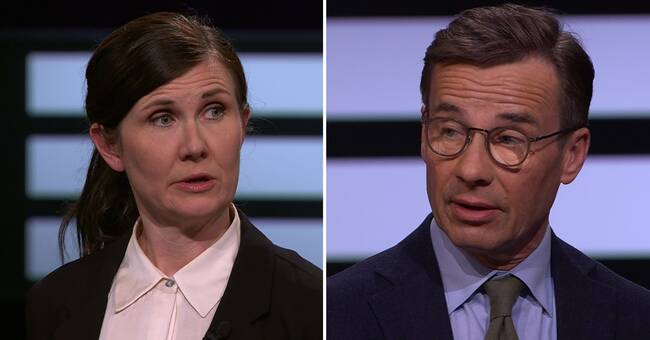This week, the government presented a proposal for a future migration policy that will replace the current, temporary migration legislation that has been in force since the refugee crisis.
One of the proposals is that residence permits should, as a general rule, be limited in time instead of permanent.
The government also presented a humanitarian basis, which means that it is possible to try a residence permit when there are particularly painful circumstances.
According to Ulf Kristersson, in practice this is an amnesty.
- We already have major integration problems in Sweden.
What Sweden risks doing is to once again make a decision about the migration policy, which in practice tells the outside world that in Sweden you will not have a strict migration policy, but here you can stay even if you have no protection reasons, says the M-leader.
Stenevi: Will not increase immigration to any great extent
Märta Stenevi does not agree.
According to the spokesperson, the proposal will not involve increased immigration to any great extent.
- This applies to people who have had protection reasons, who are here legally, and who may have lived here for ten years and established themselves.
Then there is an opportunity to apply for this humanitarian protection basis because we will not have these completely unreasonable consequences of temporary residence permits, she says.
If the Moderates end up in government after the 2022 election, the party will tear up large parts of the government's proposal.
- The parts that increase immigration to Sweden when it should be reduced, we will tear up, says Kristersson, who was asked if Sweden should no longer be a humanitarian superpower.
- If it means that Sweden will receive a much larger proportion of asylum seekers in the Nordic countries and Europe, then we will not be, says Kristersson.
- If we want a well-functioning integration then it is not based on increasing child poverty or preventing family reunifications, says Märta Stenevi.

